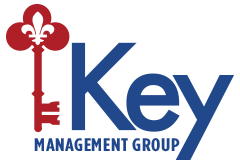Hotel Management Glossary
There are currently 56 Glossary Items in this directory beginning with the letter D.
Daily Function Board
The place(s) in the lobby and other locations within the hotel used to post information such as name of function, time, and room number for events scheduled on a specific date.
Daily Transcript
A detailed report of all guest accounts that indicates each charge transaction that affected a guest account that day, used as a worksheet to detect posting errors.
Data Mining
Using technology to analyze guest (and other) related data to make better marketing decisions.
Database
A computerized collection of related facts and figures designed to serve a specific purpose.
Decentralized Accounting
A financial management system that collects accounting data from an individual hotel site and combines and analyzes that data at the same site.
Deep Cleaning
The intensive cleaning of a guestroom, typically including the thorough cleaning of items such as drapes, lamp shades, carpets, furniture, walls, and the like.
Defibrillator
A machine used to deliver an electrical shock to the heart in case of cardiac arrest (heart attack) in efforts to re-establish a normal heartbeat.
Delayed Check-In
A procedure by which guests are assigned a room, but the issuing of a key is delayed.
Delegation
The process of assigning authority (power) to others to enable subordinates to do work that a manager at a higher organizational level would otherwise do.
Demand Generator
An organization, entity, or location that creates a significant need for hotel services. Examples in a community include large businesses, tourist sites, sports teams, educational facilities, and manufacturing plants.
Denial Code
A code generated by an on-line credit card verification service, indicating that the requested transaction has not been approved.
Departmentalization
Departmentalization is the process of grouping together people and jobs into work units.
Depreciation
The part of a fixed asset's cost that is recognized as an expense in each accounting period because it is assumed to have been "used up" during that period.
Depressed Market
The term used to describe a hotel market area where occupancy rates and/or ADRs are far below their historic levels. Used, for example, in, "The permanent closing of the military base in that town resulted in depressed market conditions in the entire county."
Desk Clerk
The person who verifies guest reservations, registers guests, assigns rooms, distributes keys, communicates with housekeeping staff, answers telephones, gives information about and directions to local attractions, accepts cash and gives change, and acts as liaison between the lodging establishment and the guest as well as the community.
Detained Property
Personal property of a guest that is held by a hotel until payment is made for the purchase of lawful products/services.
Dialog Training
Teaching employees about what to say in conversations and/or how to respond to common situations that occur on the job.
Differential Pricing
The practice of a seller charging different prices to different buyers for the same product or slightly different versions of the same product.
Differentiation
Requires the firm to distinguish its products or services on the basis of an attribute such as higher quality, more innovative features, greater selection, better service after sale, or more advertising.
Direct Bill
An arrangement whereby a guest is allowed to purchase hotel services and products on credit terms.
Direct Mail Letters
Letters sent directly to individuals in a targeted market group in a marketing effort.
Discipline
Activities designed to reinforce desired performance (positive discipline) or to correct undesired performance (negative discipline).
Discrepancy Report
A daily comparison between the status of rooms as listed by the PMS at the front office, and the status of rooms as listed by the housekeeping department.
Disk Drive
A piece of computer hardware, which writes data to and reads data from a floppy disk or hard disk.
Displacement Analysis
A structured examination of the relative merits of choosing among alternative pieces of business for the purpose of identifying the piece that optimizes revenue.
Display Screen
An output device of a computer system, which is usually capable of displaying both text and graphics. Also called a monitor, a CRT, or simply a screen.
Distressed Market
An economic condition that results in revenue levels that are significantly (10 percent or more) below historic norms.
Distribution Channel
A distinct and definable source of hotel rooms or services sales. For example, the Internet is one distribution channel, and meeting planners are another.
Diversification
Occurs when a firm expands its business operations into new products, functions served, markets, or technologies.
DNCO
Did not check-out. A room status term indicating that the guest made arrangements to settle his or her account (and thus is not a skipper), but has left without informing the front office.
DOSM
Short for "Director of Sales and Marketing." Variations include DOS (Director of Sales) and DOM (Director of Marketing).
Double-Double
A room with two double (or perhaps queen) beds, may be occupied by one or more people. Also called a twin-double.
Double-Entry Bookkeeping
A system for recording financial transactions in which every transaction creates entries that affect at least two accounts.
Dram Shop Laws
A provision in the U.S. legal code that allows an injured party to seek damages from an intoxicated person who caused the injury and from the person who provided the alcoholic beverages to the intoxicated person.
Duct
A passageway, usually built of sheet metal, which allows fresh, cold, or warm air to be directed to various parts of a building.
Due Diligence (b)
Involves a complete examination of a merger or acquisition, including such areas as management, equity, debt, sale of assets, transfer of shares, environmental issues, financial performance, tax issues, human resources, customers, and markets (Strategic Management).

